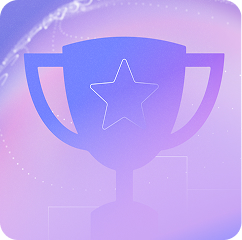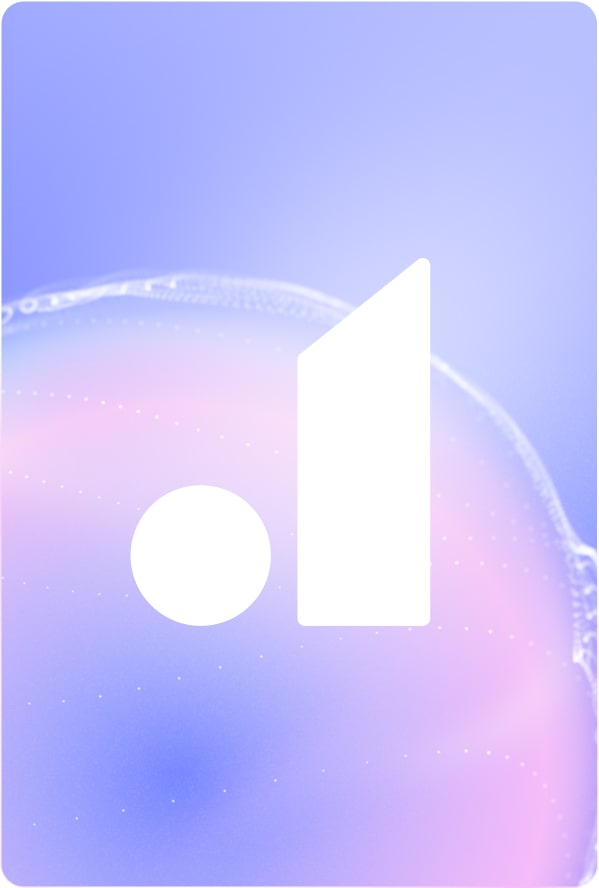
// Recruitment Technology
Complete Step-By-Step for Recruiters Migrating from RecruitCRM to Atlas
10/07/2025
10 MIN
Staying ahead means embracing technology that goes beyond just storing candidate data. Many recruiters using RecruitCRM are beginning to feel limited by manual admin tasks, basic automation, and time-consuming candidate matching processes.
As agencies push for higher efficiency and stronger client results, more are looking towards modern, AI-powered solutions like Atlas. Migrating from RecruitCRM to Atlas isn’t just a system switch. It’s a strategic move to future-proof your agency, empower your recruiters, and deliver better outcomes for clients and candidates alike.
Why are recruiters looking to migrate from RecruitCRM?
RecruitCRM has served as a reliable option for many agencies looking to move away from spreadsheets and basic databases. However, as the recruitment industry evolves, so do expectations. Recruiters today need more than just a place to store CVs — they need solutions that actively help them source, engage, and place candidates faster. Solutions like Atlas – the Recruitment Platform.
One of the main frustrations with traditional CRMs like RecruitCRM is the amount of manual admin involved. Recruiters often find themselves bogged down in repetitive data entry, tracking activities, and managing candidate follow-ups manually. This not only slows down the recruitment process but also reduces time spent on high-value tasks like building client relationships and closing roles.
Moreover, the limitations in automation and candidate matching can make it harder to identify the best candidates quickly. In a market where candidates move fast, missing out on top talent can damage a recruiter’s reputation and revenue potential.
Recruiters are also increasingly seeking tools that can help them stand out to clients, providing richer insights, better reporting, and a more proactive approach to talent pipelines.
As a result, many are now exploring alternatives that offer advanced AI capabilities and deeper automation, empowering them to focus on what they do best: building relationships and making successful placements.
What makes Atlas a strong alternative to Recruit CRM?
Atlas is built to help recruiters do more than simply store and track candidate data — it’s designed to actively drive better results and streamline day-to-day work through automation and AI. While RecruitCRM offers a solid foundation, Atlas goes further by giving your team tools to source, match, and engage candidates more intelligently.
Here’s what sets Atlas – the Recruitment Platform apart:
AI features for candidate sourcing
Atlas automatically identifies and recommends high-quality candidates, even those who aren’t actively applying. This expands your talent pool and reduces time spent hunting for candidates manually.
AI-driven candidate matching
No more endless resume screening. Atlas analyses job requirements and intelligently suggests the best-fit candidates from your database, helping you build stronger shortlists faster.
Executive search reports
Provide your clients with detailed market insights, candidate pipeline data, and progress updates with executive search reports, positioning your agency as a trusted strategic partner rather than just a supplier.
AI agents for admin tasks
Atlas automates repetitive admin, including interview scheduling, status updates, task creation, and reminders. Your recruiters can focus on revenue-generating activities and building relationships.
Together, these features make Atlas a future-ready alternative to RecruitCRM, empowering your team to work more efficiently, make better placements, and ultimately grow your business with confidence.
Switch to a no-fluff, zero admin ATS that does the heavy lifting for you. Try it for free >>
How does Atlas handle data migration from RecruitCRM?
Step 1: Getting your data export from RecruitCRM
We start by collecting your data export from RecruitCRM. This usually arrives in CSV format or as a structured backup, and may be delivered through a secure download link or FTP access. Once your export is available, simply share the details with our team.
We’ll take care of securing and retrieving the data, no technical knowledge required on your end.
Step 2: Reviewing and staging your data
After receiving the export, we load your RecruitCRM data into Amazon Redshift. This staging area gives us a structured view of your legacy information, helping us identify key data types and how they were stored.
From candidate profiles and placement histories to job activity and company records, we get a complete picture that helps guide the rest of the migration process.
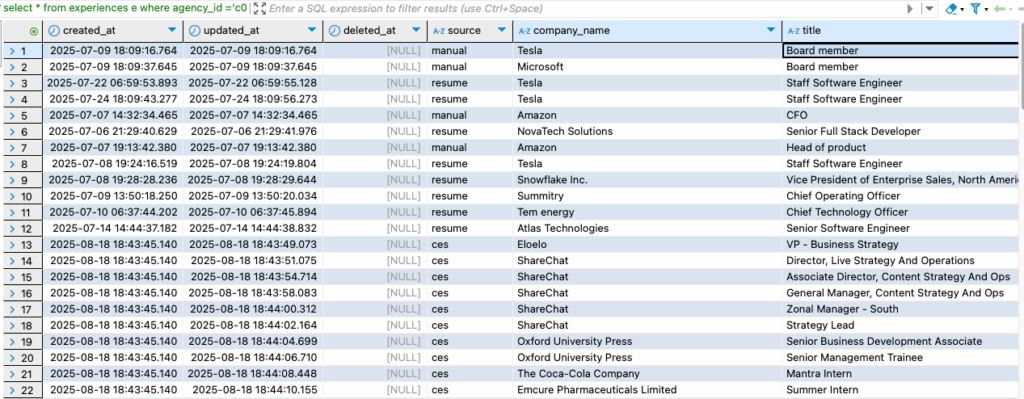
Step 3: Mapping and aligning fields
Using our Migration Dashboard, we guide you through field mapping. You’ll see how RecruitCRM fields line up against Atlas’s data model, and we’ll provide recommendations for aligning them properly.
This includes standard fields like job titles and candidate statuses, as well as custom data unique to your setup. You’ll be able to approve, revise, or confirm the mappings directly in the dashboard.
Step 4: Transforming and optimizing your data
Once the mappings are in place, our team uses DBT to apply transformation logic. This includes data cleanup, deduplication, filling in missing fields, and applying Atlas-specific formats. We also use automation to streamline repetitive changes and ensure consistency across your dataset.
The goal is to make your RecruitCRM data Atlas-ready, with minimal clutter and maximum accuracy.
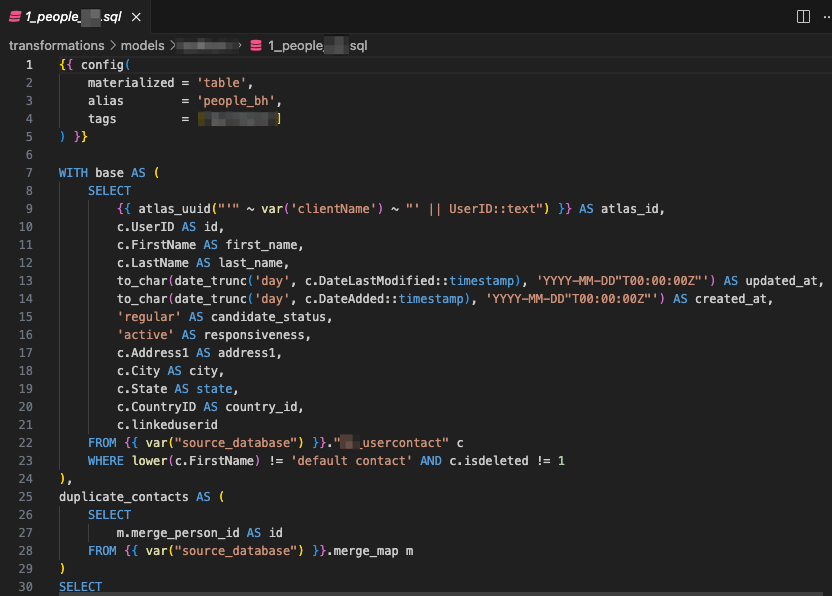
Step 5: Running QA checks and staging validation
We run automated QA tests to validate every aspect of your data. These checks confirm that fields are correctly populated, values follow expected formats, and inconsistencies are flagged for review. AI-powered detection adds another layer of accuracy, catching edge cases and unusual patterns.
We then load your data into a staging version of Atlas, where you can verify that everything looks correct. A checklist guides your review process and our team is available to assist with any questions.
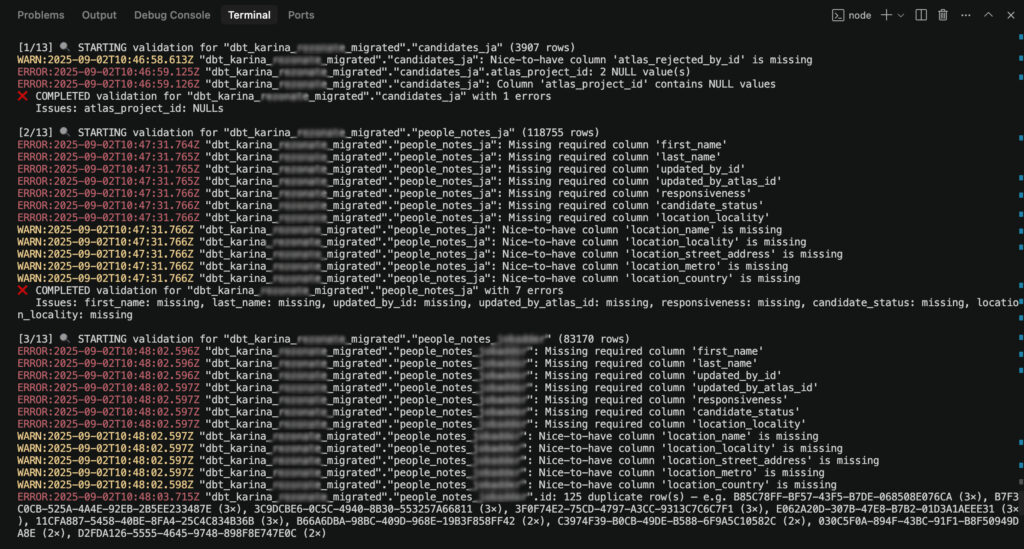
Step 6: Final deployment to live Atlas
Once staging is approved, we move your data into the live Atlas environment. If you already use Atlas, we carefully merge the new data with your current records. If you’re starting fresh, the staging environment becomes your live system.
All files and documents from RecruitCRM are linked properly, and search indexing is completed. Your data is now fully live in Atlas, ready for your team to use.
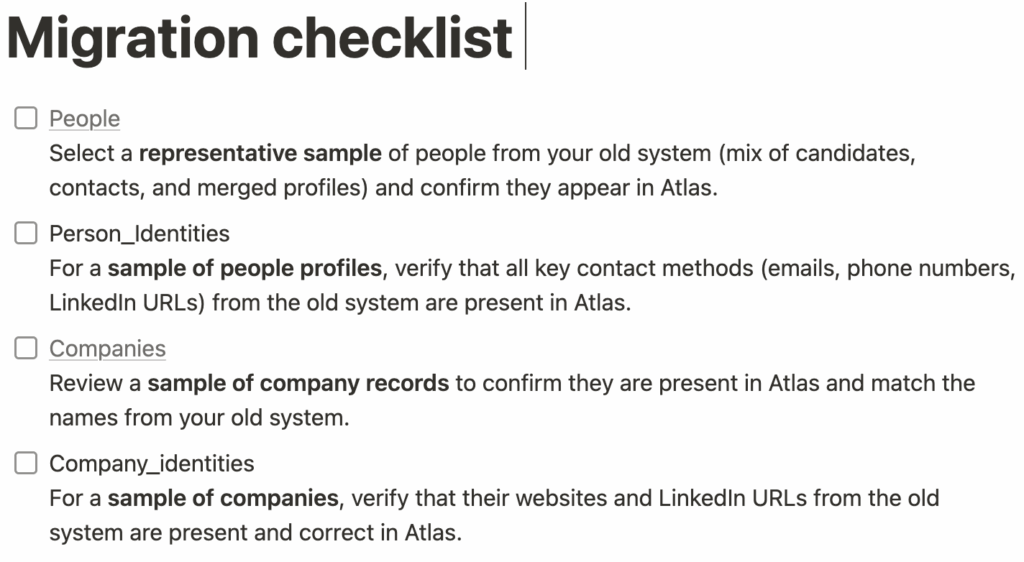
With Atlas, data migration isn’t just a technical transfer. It’s a fully supported transition designed to set your agency up for immediate success. Tell us all about your database >>
What benefits do recruitment agencies see after migrating to Atlas?
Once recruiters make the move from RecruitCRM to Atlas, the benefits become clear almost immediately. Beyond just a smoother system, Atlas fundamentally changes how agencies operate and deliver value to clients.
First, efficiency dramatically improves. With AI-powered sourcing and candidate matching, recruiters spend far less time searching and screening. This frees them up to focus on high-impact activities such as building client relationships, negotiating offers, and developing new business opportunities.
Second, more placements get made, and faster. By surfacing stronger matches from day one, Atlas shortens time-to-placement and increases fill rates. This can have a direct positive impact on revenue, as well as client satisfaction.
Third, client relationships become stronger and more strategic. Executive search reports equip your team with insights and data that demonstrate expertise and market knowledge. Clients gain transparency into the process, which builds trust and differentiates your agency from competitors who provide little visibility.
Fourth, recruiters are freed from repetitive admin tasks. With Atlas’s AI agents handling scheduling, reminders, and data updates automatically, recruiters can stay focused on building human connections rather than battling their inboxes or updating spreadsheets.
Finally, the shift to a more advanced, AI-driven system can also boost team morale and attract top recruitment candidates. Today’s recruiters want to work with the best tools available, not be held back by outdated, manual workflows.
Altogether, migrating to Atlas transforms recruitment teams into faster, smarter, and more client-focused machines, ready to thrive in a competitive market.
How long does it take to migrate from RecruitCRM to Atlas?
One of the most common questions recruiters have is: How long will the data migration actually take? The good news is that, with Atlas, the timeline is designed to be as quick and seamless as possible.
While every agency’s data and setup are unique, most data migrations from RecruitCRM to Atlas can be completed in just a few weeks. The exact timeline depends on factors such as the size of your database, data complexity, and how clean your existing records are. Thanks to Atlas’s dedicated data migration team and proven process, agencies typically experience little to no downtime.
Once data is transferred and tested, your team receives onboarding support to get comfortable with Atlas quickly. Training sessions, live support, and detailed documentation help your recruiters hit the ground running, so you can start benefiting from Atlas’s AI-powered recruitment features straight away.
Start migrating today and don’t skip a beat in your workflow. Try Atlas >>
What should you prepare before migrating from RecruitCRM?
A smooth data migration starts well before the first bit of data is moved. Preparing your team and your data properly helps ensure a seamless transition to Atlas, minimising any surprises along the way.
Here’s what you should do to prepare properly:
Review and clean your data
Remove outdated contacts, merge duplicate records, and update missing information. This ensures you start in Atlas with a high-quality, accurate database.
Involve your recruiters early
Share the reasons for switching and highlight how Atlas will make their day-to-day work easier and more productive. Early involvement builds buy-in and reduces resistance to change.
Plan your timing carefully
Avoid migrating during peak hiring periods or big campaign launches. Coordinate with the Atlas data migration team to pick a window that minimises disruption.
Communicate with clients and candidates as needed
While downtime is rare, informing key clients about your move to a more advanced system positions it as an investment in delivering even better service.
Prepare for onboarding and training
Atlas offers comprehensive support and training content for any recruitment business looking to migrate from their current system. Setting aside time for team training ensures everyone feels confident and ready to hit the ground running.
By taking these steps, you’ll be well-positioned to make the most of your move to Atlas and start reaping the benefits immediately.
Frequently Asked Questions (FAQ) on migrating from RecruitCRM to Atlas
The biggest advantage is the leap in efficiency and performance. Atlas’s AI-powered sourcing and candidate matching drastically reduce manual work, helping recruiters place better candidates faster and spend more time on high-value activities like client relationships and business development.
No. Atlas’s dedicated data migration team ensures all your data is transferred securely and completely, ensuring a smooth transition from your current system. The process includes thorough data mapping, testing, and final review, so you can be confident that everything — from candidate records to notes and attachments — moves over accurately.
Most teams start using Atlas within just a few weeks. After data migration, Atlas provides onboarding support and training to help your recruiters get comfortable with the system quickly. Many recruiters report being fully up and running within days of going live.
Atlas gives you powerful tools like executive search reports, advanced market insights, and transparent candidate pipelines. These features position your agency as a strategic partner rather than just a CV supplier, helping build trust and long-term client relationships.
Ready to make the switch from Recruit CRM?
Switching to a new AI recruitment tool can feel like a daunting step. The thought of moving years of data, getting recruiters up to speed, and risking potential disruption can make even the most forward-thinking agencies hesitate. But with the right support and a clear, proven framework, data migration doesn’t have to be stressful — it can actually be an opportunity to level up your business.
Atlas is the applicant tracking system built to make this transition as smooth as possible for recruiting agencies. From a dedicated data migration team that safeguards your data to advanced AI features that empower your recruiters from day one, Atlas has you covered at every stage to ensure a smooth transition.
By making the move, you’re not just changing systems; you’re giving your team the tools to work smarter, place faster, and stand out to clients in an increasingly competitive market.
Ready to take your agency to the next level? With Atlas, migrating from RecruitCRM really can be a breeze. Start today >>


